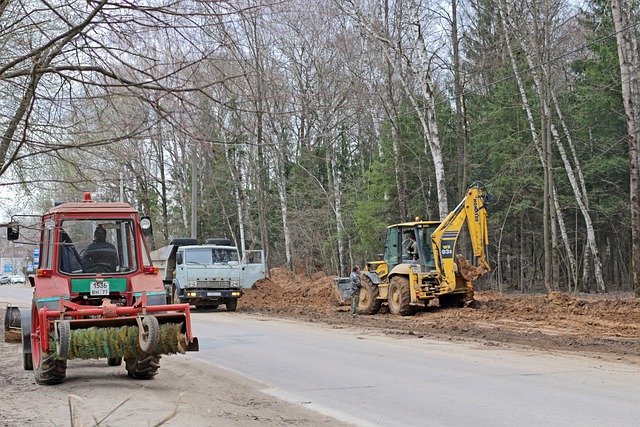Asphalt is a durable, versatile, and weather-resistant material that is used for paving different roads from parking lots to driveways or even motorways. Asphalt suppliers throughout the world know it’s strength. It is known to remain durable through daily wear and tear and the weight of heavy trucks, but are asphalt types that diverse? We will be looking at several types today to find out.
There are two main types of asphalt: hot mix and cold mix. Today, we’ll take a look at each of them to help you decide which is best for your project.

1. MC Cold Mix
MC Cold Mix is a type of asphalt you will often see provided by asphalt suppliers. MC cold mix is emulsified bitumen and aggregate mixed together with a low amount of water. This is an economical and environmentally friendly way to create a strong, durable, and long-lasting road surface.
Unlike hot mix asphalt, cold mix does not require heating. This makes it a great choice for laying in the winter when the weather is too cold for hot mix asphalt installation.
It is also a more affordable option for smaller projects. If you have a crack or pothole that needs to be patched, you can use cold mix for a temporary fix until the warmer weather comes.
If you have a larger project and need a stronger and more durable surface, then hot mix asphalt may be a better option for your needs. This type of asphalt is more expensive, but it can last longer and be more durable.
It is also more flexible and malleable, allowing it to expand and contract as the temperature changes without becoming damaged or cracked. This makes it a good choice for pavements that see heavy traffic and are located in areas with extreme temperature swings. Regardless of the type you choose for your project, you need to ensure that it is safe to work with and has a good shelf life.
2. UPM
UPM stands for “unified pavement mix.” It’s a mixture of hot and cold asphalt that can be used in a variety of applications. This type of asphalt is great for paving projects and can be a long-term solution to a problem, but it must be utilized soon after purchase to prevent the asphalt from hardening.
Aside from the obvious benefits of being a long-term solution, UPM is also weatherproof. This makes it ideal for patching both wet and dry potholes, as well as repairs to roads.
As the name implies, this asphalt type is created by heating the binder to decrease its viscosity and mixing it with the aggregates. It can be used for a variety of paving and patching needs, but it’s best suited to low-traffic areas because it takes a long time for the mix to cure.
This type of asphalt is commonly used for parking lots because it allows water to drain through the material, which helps mitigate smoke, emissions, and odour. However, it’s not suitable for high-traffic areas, so it’s only used for driveways and patios.
3. 41B
Asphalt is a versatile, durable, and reusable surface that is used in roads, driveways, and parking lots across the country. However, not all asphalt types are the same and some are more suitable for certain applications than others.
41A – This is the most commonly used type of asphalt and is often referred to as the driveway mix. It consists of a mixture of finely crushed rock and sand with an oil content up to 6 per cent. The oil acts as a binding material that holds the rock and sand together.
This type of asphalt is perfect for driveways because it is able to hold heavy loads, such as trucks, trailers, and boats. It also offers a smoother surface, which is ideal for homeowners who want their driveways to look more pleasing.
41B – This type of asphalt has a larger-sized rock and sand mixture, with rocks up to 5/8 inch in size. It also uses less oil than the 41A, making it perfect for heavier loads of up to a ton.
Depending on your driveway needs, the right type of asphalt can make all the difference between an easy maintenance job and one that will require a lot of effort. Whether you are paving a new driveway or just need a repair, the right choice will help keep your home safe and secure.

Melissa is a climate writer passionate about environmental sustainability and global climate solutions. She focuses on creating informative content about climate policies, renewable energy, and the importance of community-driven environmental initiatives.

